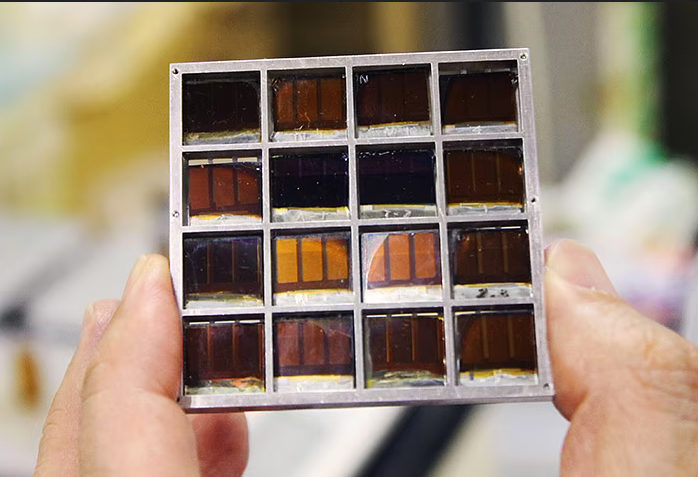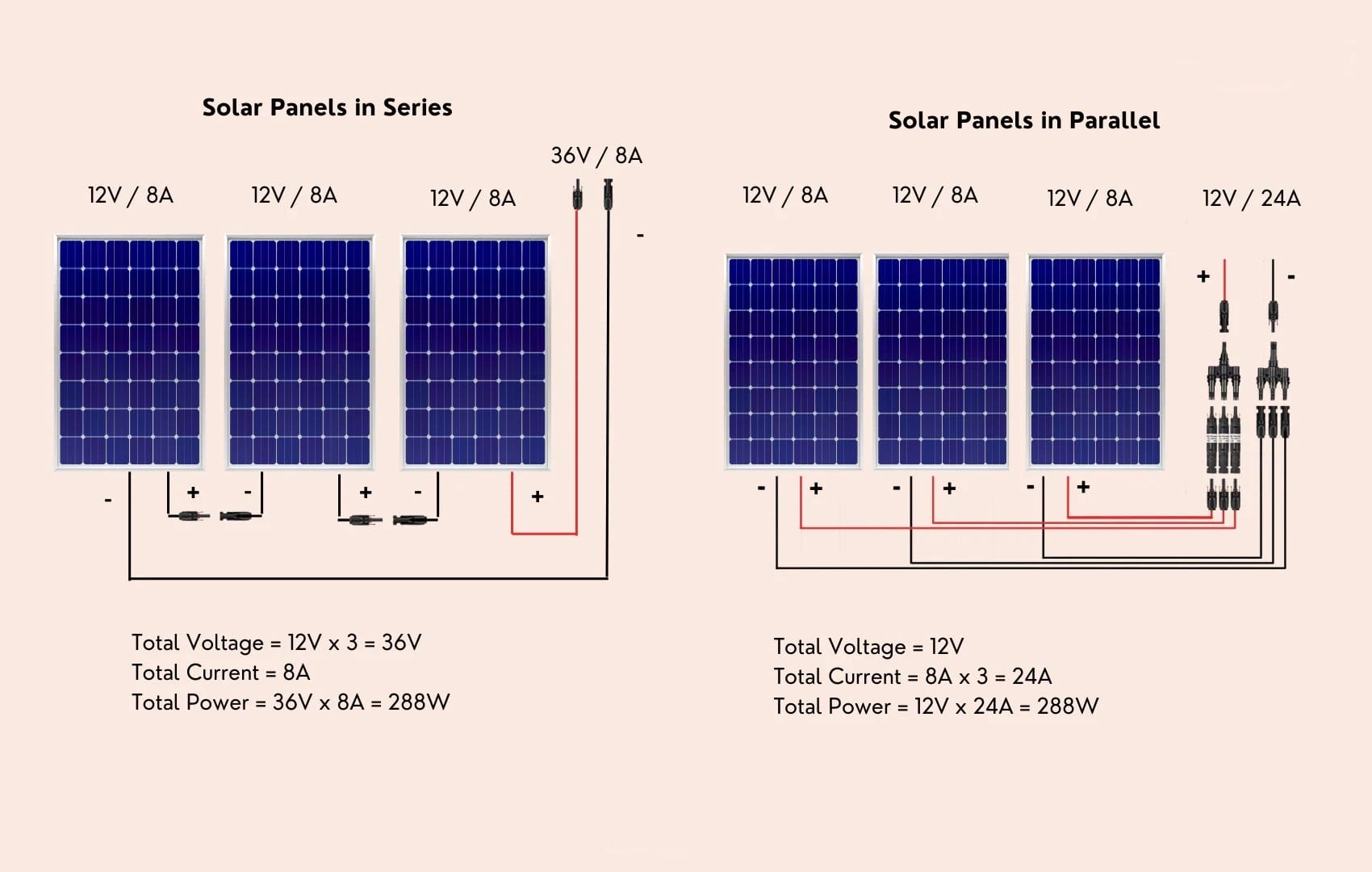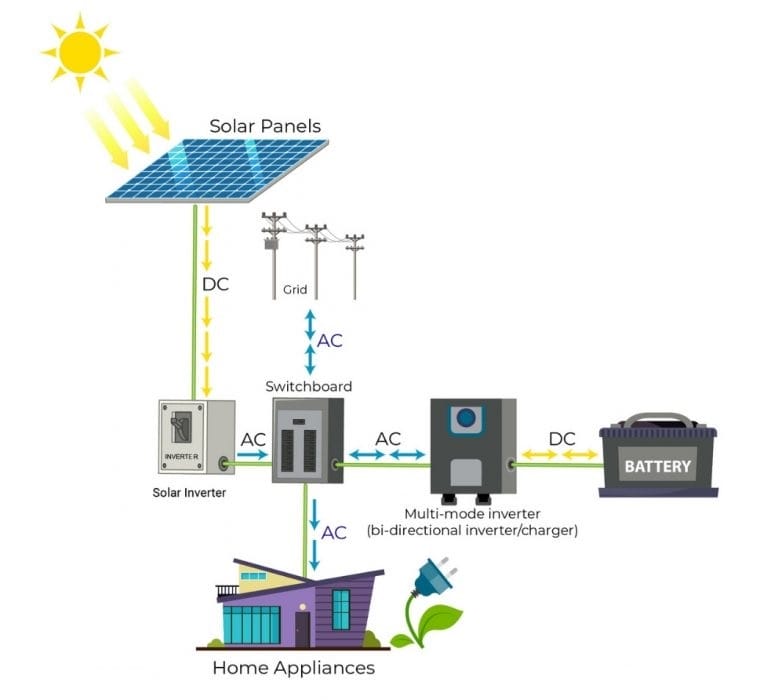Several factors impact the efficiency of a solar panel, including the type of solar cell, the quality of materials used, and environmental conditions. Monocrystalline solar panels tend to be more efficient than polycrystalline ones, while the overall build quality affects durability and performance. Additionally, factors like shading, temperature, and the angle of installation can influence efficiency. It's essential to choose high-quality panels and optimize their placement for maximum sunlight exposure to ensure the best performance and energy output.
Solar Panels
-
Solar Panel - 3W, 6V
Out of stock -
Solar Panel - 9V, 150mA
Out of stock -
Solar Panel - 0.6W, 6V
Out of stock -
Solar Panel - 3W, 9V
Out of stock
What is Solar Panels?
Solar panels are photovoltaic devices that harness sunlight and convert it into electrical energy, offering a sustainable and eco-friendly power source. These panels consist of solar cells, usually made of silicon, which generate a direct current (DC) when exposed to sunlight. Solar panels play a pivotal role in renewable energy solutions, providing an efficient means of capturing solar radiation and converting it into usable electricity. They find applications in various sectors, from residential and commercial installations to powering remote devices and off-grid systems.

Price of Solar Panels:
The cost of solar panels can vary based on factors such as wattage, brand, and efficiency. When considering solar panels for your project, it's essential to assess your energy needs and budget. Higher wattage panels and those with advanced technologies may come at a higher price point but often offer greater energy output and efficiency. Exploring different options and understanding the specific requirements of your application will guide you in making a cost-effective and sustainable choice.
Tips for Buying Solar Panels:
When purchasing solar panels, consider factors like wattage, efficiency, and durability. Assess your energy requirements to determine the appropriate wattage needed for your project. Look for panels with high efficiency ratings to maximize energy conversion. Additionally, check for durability features such as weather resistance and warranty periods. Research customer reviews and seek recommendations to ensure the chosen solar panels align with your expectations and deliver reliable long-term performance.
Popular Models of Solar Panels:
What factors influence the efficiency of a solar panel?
How long do solar panels typically last?
Solar panels are designed to be durable and have a long lifespan. On average, they can last between 25 to 30 years or even more with proper maintenance. The key to maximizing their lifespan is regular inspection, cleaning, and ensuring they are not subjected to excessive physical stress. Over time, the efficiency of solar panels may gradually decrease, but it's a gradual decline that allows them to continue generating power for decades. Investing in quality panels and adhering to proper maintenance practices contributes to prolonged longevity.
Can solar panels be used in areas with limited sunlight?
Solar panels can still be effective in areas with limited sunlight, though their efficiency may be lower compared to sunnier regions. Modern solar panel technology has improved their ability to generate power even in diffuse or indirect sunlight. Additionally, choosing high-efficiency panels and optimizing their positioning can help mitigate the impact of reduced sunlight. While solar panels perform best in direct sunlight, advancements in technology have made them a viable and sustainable energy solution for regions with varying sunlight conditions.
What maintenance is required for solar panels?
Solar panels generally require minimal maintenance to ensure optimal performance. Regular cleaning to remove dirt, dust, and debris is essential, as accumulated particles can reduce sunlight absorption. Inspecting the panels for any signs of damage, such as cracks or loose connections, is crucial to prevent further issues. Additionally, checking the inverter and other components ensures the entire system functions smoothly. Routine maintenance, coupled with occasional professional inspections, safeguards the longevity and efficiency of solar panels, making them a low-maintenance and reliable energy solution.
Can solar panels be connected in series or parallel?
Yes, solar panels can be connected in both series and parallel configurations. Connecting panels in series increases the system's voltage, which can be beneficial for long-distance power transmission or when charging higher voltage batteries. On the other hand, connecting panels in parallel maintains the system voltage while increasing the overall current, ideal for systems with lower voltage requirements. The choice between series and parallel connections depends on the specific energy needs and the electrical setup of the application, offering flexibility in designing solar panel systems.

How do temperature and weather conditions affect solar panel efficiency?
Temperature and weather conditions play a role in the efficiency of solar panels. While solar panels perform optimally in direct sunlight, high temperatures can slightly decrease their efficiency. However, this reduction is often compensated by the increased sunlight intensity in warmer climates. Rain and snow can temporarily impact performance, but most modern solar panels are designed to be self-cleaning, allowing them to shed water and snow easily. The overall impact of weather conditions on solar panel efficiency is relatively minimal, and advancements in technology continue to enhance their resilience and adaptability to varying climates.
What is the role of inverters in a solar panel system?
Inverters play a crucial role in a solar panel system by converting the direct current (DC) generated by the panels into usable alternating current (AC). AC is the standard form of electricity used in homes and businesses. Inverters ensure that the electricity produced by the solar panels is compatible with the electrical grid or can be utilized by household appliances. There are different types of inverters, including string inverters, microinverters, and power optimizers, each with its advantages. Choosing the right inverter for your solar panel system is essential for optimizing energy production and overall system efficiency.
